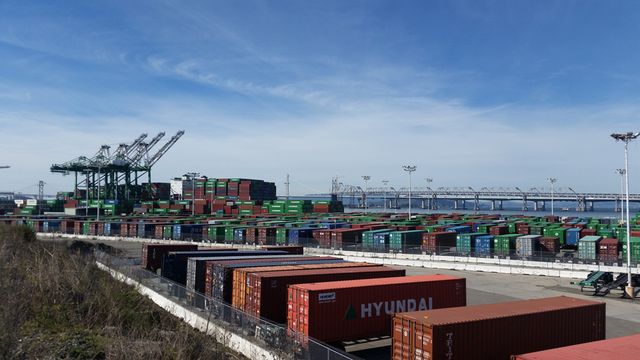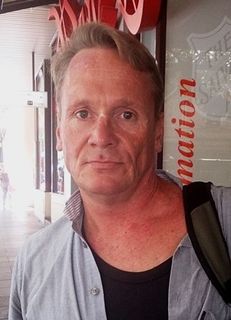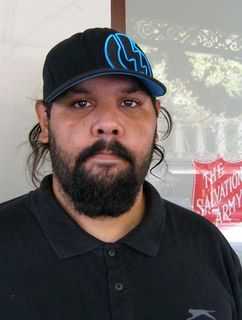Ed Hightower
On Monday, the military trials of five alleged 9/11 conspirators at Guantanamo Bay came to a temporary pause when it came to light that a court-appointed defense interpreter and linguist had previously worked at CIA “black sites” where the defendants had been detained and tortured.
According to the Associated Press, defendant Ramzi Binalshibh told the presiding judge that the interpreter seated next to him was someone that he and other defendants recognized from their earlier incarceration at secret CIA prisons before their transfer to the US Naval Base at Guantanamo Bay, Cuba.
Defense attorney Cheryl Bormann of Chicago represents Walid bin Attash, another 9/11 defendant who was present at the hearing Monday. She told the AP that Attash was “visibly shaken” to see an individual who “participated in his illegal torture” in the courtroom today.
“If this is part of the pattern of infiltration by government agencies into the defense teams, then the right people to be addressing this issue are not in the courtroom,” Bormann added.
Monday’s court proceedings were the first to take place since the release of the Senate Intelligence Committee’s report on the CIA’s torture of detainees at CIA and military facilities, including rectal feeding and other barbaric torture practices.
Four out of the five defendants at Monday’s hearing said that they were certain that the interpreter in question was present at the CIA detention site where they were held. Their lawyers suggested to the judge that the former CIA asset’s placement on the defense team was no accident, and they requested time to further investigate this.
On Tuesday, the Pentagon responded to the previous day’s revelations with an admission that the interpreter in question had in fact worked for the CIA.
“The member of the defense team referenced in previous hearings has in the past made readily available to prospective supervisors his prior work experience with the United States government, including with the CIA,” Pentagon spokesman Myles Caggins stated.
“The prosecution does not have any role in providing linguists to defense teams in military commission,” he added.
Defense attorney Bormann contradicted this claim in a statement to the AP, saying that the interpreters are part of a pool of linguists provided to the defense teams, and their resumes and backgrounds cannot be studied in detail.
“Now the question is what other infiltration has occurred and to what extent has it destroyed our ability to represent these men,” she said.
Further undermining Caggins’ claim was the statement by Jim Harrington, attorney for defendant Binalshibh, that the interpreter lied on his resume. Harrington told the Miami Herald on Tuesday evening that his team asked the interpreter whether he had “participated in any interrogation, questioning or done any work with respect to detainees. Any place. His resume denies it. It says he worked someplace else—Reston, Virginia, from 2002 to 2006.”
“We vetted him. He denied it,” Harrington said.
The fact that a CIA operative has found his way onto the defense team representing his former victims speaks volumes about the military commission process. Taken in context, the presence of a CIA spy on the defense team fits the show trial character of the proceedings as a whole, which have been discredited time and again by interference with the defendants’ right to counsel.
From the outset, the military tribunals against the 9/11 defendants were designed with two goals: first, to railroad the defendants into conviction by any means, including confessions extracted by torture; and second, to protect the gory details of US imperialist involvement with the Islamic fundamentalist terror groups that it arms and funds one day, and denounces, persecutes and destroys the next, depending on the foreign and domestic policy needs of the American ruling class at any given time.
Thus, the alleged conspirators in the terror attacks of 9/11—an event which has the hallmarks of US government involvement—were in many cases kidnapped from around the globe, held incommunicado and tortured, brought to Cuba for further torture and indefinite detention, and now face the death penalty in proceedings that make the secret court of Star Chamber seem equitable by comparison.
The commission is housed in a $12 million “Expeditionary Legal Complex,” where reporters sit behind soundproof glass, listening to the proceedings on a 40-second delay. A large red light bulb at the judge’s bench, seen in this video, illuminates when he or a security officer presses a button to mute the audio when the testimony may concern evidence of CIA torture or other “sensitive information.”
In January 2013, this muting device was activated without the judge’s say so, indicating that someone outside of the proceeding, and essentially above the law, can intervene and silence the audio feed at will. The Guardian later reported that this “outside” silencer was the CIA.
In February 2013, lawyers for the defendants complained of advancedsurveillance devices in attorney-client meeting rooms hidden inside of phony smoke detectors. In April of that year, defense attorneys learned that some 500,000 internal emails had been seized by the Department of Defense.
In April 2014 Judge Pohl again put the proceedings on pause following revelations that the FBI had been secretly recruiting a member of the defense team’s security detail to be an informant. In fact, the CIA agent-turned-interpreter who was exposed at Monday’s hearing was serving as a replacement for an earlier interpreter who was also working with the FBI.
After allowing for the filing of motions on Tuesday, Judge Pohl denied defense motions to halt the case until further inquiry regarding the interpreter on Wednesday, saying that this was “premature.”
The uncovering of a CIA spy on the defense team underscores the sham character of the military commissions for the accused 9/11 conspirators. The defendants are systematically denied their Sixth Amendment right to an attorney, which is meaningless when attorney-client meetings are the subjects of surveillance. No attorney, no matter how skilled, can successfully represent a client who is being intimidated from having honest, open communication with his counsel.
These most recent developments in the proceedings, coming after the release of the Senate Intelligence Report on CIA torture, also highlight the terminal crisis of American democracy as a whole. Those who are accused of terrorism are tortured, indefinitely detained, intimidated and denied the right to counsel, while US government officials who invade countries, fund terrorism, institutionalize torture, and shred constitutional rights do not face so much as an indictment.





